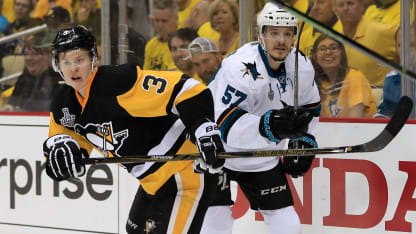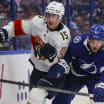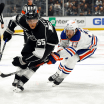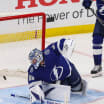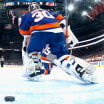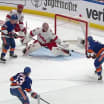Pittsburgh showed no signs of fatigue after having played seven games in the Eastern Conference Final against the Tampa Bay Lightning, and were not caught up in the moment with several players having experience from the 2009 Cup Final. Forwards Evgeni Malkin, Sidney Crosby and Chris Kunitz, defenseman Kris Letang and goalie Marc-Andre Fleury all remain from that Cup-winning team.
And we can't forget about the production from the "HBK" line. Carl Hagelin, Nick Bonino and Phil Kessel have been great all postseason. Kessel leads the Penguins with 18 points (nine goals) and his line was on the ice for the game-winning goal late in the third period in Game 1, scored by Bonino and assisted by Hagelin and Letang.
Not only is Bonino (four goals, 12 assists) stepping up, but Pittsburgh's young players, including Bryan Rust, 24, (six goals, three assists), Conor Sheary, 23, (three goals, five assists) and Tom Kuhnhackl, 24, (two goals, three assists), have stepped up both offensively and defensively.
Minuses: Pittsburgh had some lapses in Game 1, mostly in the second period when it allowed two goals, was outshot 13-8 and outplayed. True, the Penguins dominated the other two periods, but if not for a late third-period goal, the game could have gone to overtime. The Penguins can't let up and need to play Game 2 the way they did in the first period of Game 1.
Malkin has yet to take over a game in the playoffs. He has 15 points (four goals, 11 assists) in 18 games this postseason and had a five-game point streak (one goal, five assists) stopped in Game 1 against the Sharks, but hasn't shown flashes of the player he can be since Game 3 of the first round against the New York Rangers when he had two goals and two assists and did everything for the Penguins in a 5-0 win.
